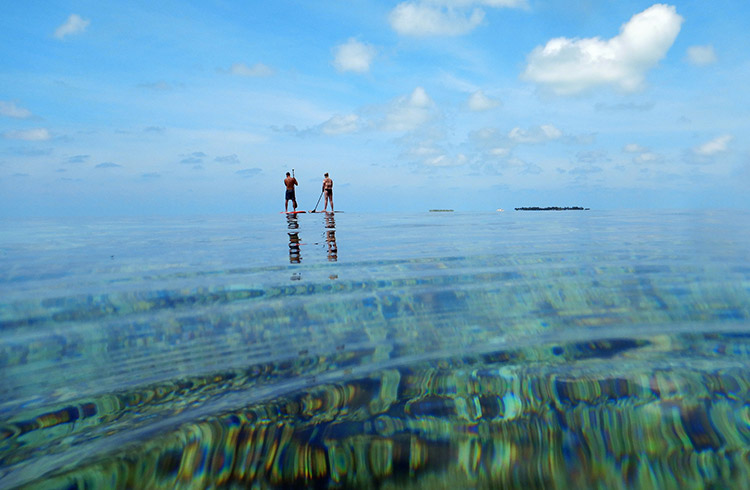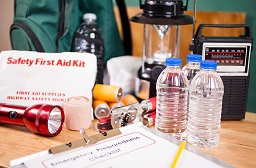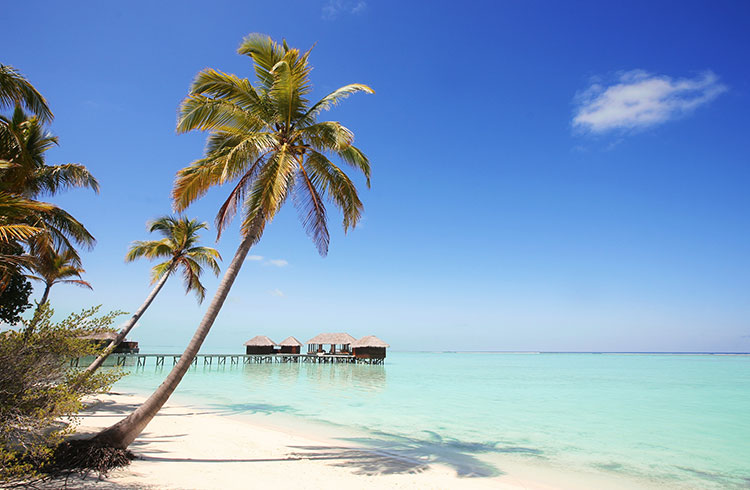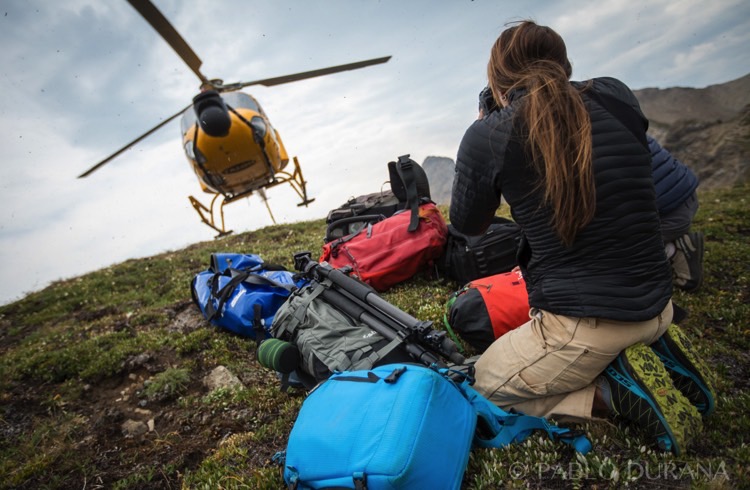How to Stay Healthy in the Maldives: 5 Essential Tips
Is the water safe to drink in the Maldives? What other dangers might this island paradise harbor? Avoid getting sick and keep mosquitoes at bay with these tips from nomad and former Maldives resident Sarah.
 Photo © Getty Images/Federica Grassi
Photo © Getty Images/Federica Grassi
The Maldives is an enticing destination for jetsetters, divers, and backpackers. Adventure beckons, with coral reefs teeming with colorful fish, turtles, sharks, and rays, plus scuba diving and surfing. But even if you’re planning on a "fly-and-flop" vacay, it’s a good idea to be aware of any potential hazards in these remote tropical islands.
The capital, Malé, has two main hospitals plus several private clinics offering basic medical facilities. Other islands sometimes have limited medical facilities. Should you require complex care, such as surgery, neighboring India’s top hospitals (or heading home) are recommended.
Whether you're island hopping or relaxing at a resort, it's important to take out travel insurance and to take steps to prevent unwanted injuries or illnesses. Here are five essential things to know about the Maldives.
Can I drink tap water in the Maldives?
Water sanitation varies greatly from island to island in the Maldives. In the capital, the tap water is desalinated sea water, and while it doesn’t taste great, it’s safe to drink. Local (desalinized) bottled water, or international brands such as Fiji Water, are available everywhere, but you might want to consider the carbon footprint and plastic waste involved – a reusable bottle with a filter would be more responsible.
Resort staff will tell you if their tap water is safe or not.
Tap water on inhabited islands may be desalinated, come from treated rainwater, or be treated groundwater. But the standard of water treatment on these islands varies enormously. To avoid traveler’s diarrhea or parasites, stick to bottled water or read our guide to water sanitation.
Sun safety tips
The Maldives is an archipelago straddling the equator – the sun is very intense and the average burn time is just 10 minutes. It's critical to stay well-hydrated, wear a hat, and apply sunscreen regularly. Wearing a rash shirt helps prevent sunburn from sneaking up on you, particularly if you’re snorkeling or kayaking. You’ll be able to find sunscreen, calamine, painkillers, rehydration drinks, and aloe vera in most grocery stores.
Mosquito-borne diseases in the Maldives
Dengue fever is present in the Maldives, and there are also occasional cases of chikungunya fever. Both are carried by tiger mosquitos, which can bite during daytime but are most active at dawn and dusk. Only strong insect repellent containing DEET will repel these big suckers. Resorts regularly conduct “fogging” (a technique used for killing insects that involves using a fine pesticide spray directed by a blower) to reduce mosquitos, but inhabited islands do it rarely, so your risk is higher there.
Mosquito nets aren’t used in the Maldives and you won’t find hooks for hanging them, so buy a plug-in mosquito-killer from the grocery store. Check out this informative article on mozzies and the lowdown on Dengue Fever.
Water hazards
Diving and snorkeling in the Maldives is some of the best in the world. Two things you’ll notice – the huge amount of fish, and the sharks. Reef sharks are the most common of the 25 species in the Maldives. They aren’t an aggressive or large species and attacks are extremely rare, and normally related to fish feeding.
Thousands of people safely swim alongside reef sharks every day in the Maldives. Only pole and line fishing are permitted here, so the sheer volume of fish keeps the sharks well-fed.
The golden rule is to touch nothing, and make sure you don’t swim too close to or step on rocks and coral. This way, you’ll avoid coral rash as well as any potential stings or bites from anything lurking in the rocks, such as well-camouflaged anemones, morays, stonefish, lionfish, and scorpionfish (the latter four are the most serious).
Most divers know that it’s a good idea to steer clear of triggerfish during nesting season (April-May), particularly Titan Trigger Fish. They are territorial and may chase you, but their territory extends in a cone shape up from the seabed, so if one follows you, kick it away with your fins and swim horizontally (not up).
Scuba diving safety in the Maldives
Many novices are tempted to try Discover Scuba dives or getting certified in the Maldives. Most of the dive centers are excellent, but it doesn’t hurt to check recent Google and Facebook reviews before booking.
You must have insurance to dive in the Maldives, and Maldivian operators are very cautious about safety standards such as bottom time and surface intervals. No decompression dives are allowed – every diver must dive with a dive computer and no one can dive less than 24 hours before a flight. Should the worst happen, the Maldives has four decompression chambers, but due to the geography of the Maldives, they could be hundreds of miles away. See our comprehensive guide to diving safely.
Related articles
Simple and flexible travel insurance
You can buy at home or while traveling, and claim online from anywhere in the world. With 150+ adventure activities covered and 24/7 emergency assistance.
Get a quote


No Comments